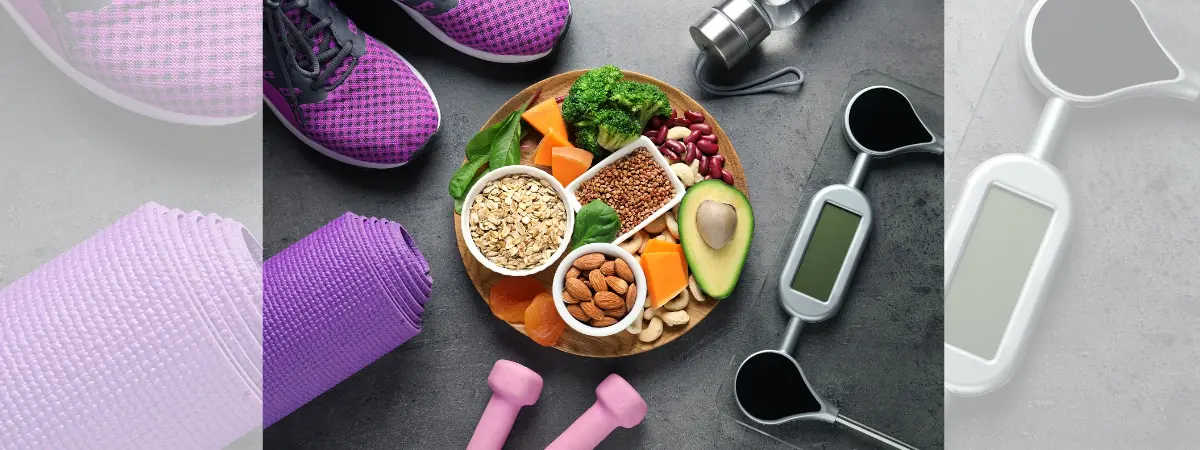Working Time
Working Time
Book Appointment
Book Appointment
+
Optimizing Sports Performance and Recovery:
The Role of Nutrition for better Performance and Recovery

Nutrition is a cornerstone in enhancing sports performance and fostering efficient recovery, particularly for athletes at I-SPORT Medical Centre in Balewadi, Pune. Athletes benefit from tailored dietary approaches to meet their unique needs, ensuring optimal energy levels, muscle repair, and nutrient intake. Let's delve into the vital aspects of nutrition for sports performance and recovery, spotlighting key nutrients, meal timing, and strategies to maximize athletic potential.
Fueling Performance at I-SPORT Medical Centre:
- Macronutrients: Athletes here thrive on a balanced intake of macronutrients. Carbohydrates, sourced from whole grains, fruits, and vegetables, are essential for sustained energy, while lean proteins from poultry, fish, and legumes support muscle repair. Healthy fats from avocados and nuts aid in energy production and inflammation reduction.
- Hydration: Hydration is paramount for peak performance. Athletes are encouraged to maintain optimal fluid levels before, during, and after exercise, preventing endurance decline and muscle cramps. Monitoring urine color helps gauge hydration status, aiming for pale yellow as an indicator of sufficient hydration.
- Pre-Exercise Fuel: I-SPORT Medical Centre advises consuming a balanced meal or snack rich in carbohydrates, protein, and healthy fats 1-3 hours before exercise. This preps the body with sustained energy, staving off fatigue during physical activity.
Recovery and Muscle Repair Support:
- Protein Intake: Adequate protein consumption post-exercise is vital for muscle repair. Lean sources like poultry, eggs, and dairy products, as well as plant-based options, are recommended to promote muscle protein synthesis.
- Carbohydrate Replenishment: Rapid glycogen replenishment post-exercise is facilitated by consuming carbohydrates within 30-60 minutes. Opt for whole grains and fruits to optimize glycogen synthesis.
- Fluid and Electrolyte Replacement: Rehydration with electrolyte-rich fluids aids in replenishing what's lost through sweat. Including sodium, potassium, and magnesium in post-workout meals or opting for sports drinks after intense exercise supports electrolyte balance.
- Pre-Exercise: Athletes are encouraged to fuel up with a small, easily digestible snack 30-60 minutes before exercise if needed. Carbohydrate-rich options like bananas or energy bars are ideal choices.
- Post-Exercise: A meal or snack comprising carbohydrates and protein within 1-2 hours post-exercise aids in glycogen replenishment and muscle recovery. Options like protein shakes or chicken with rice are recommended.
- Snacking: Nutritious snacks throughout the day maintain energy levels. At I-SPORT Medical Centre, options like nuts, yogurt, or protein bars offer a balance of macronutrients.
Conclusion:
I-SPORT Medical Centre in Balewadi, Pune emphasizes the pivotal role of nutrition in optimizing sports performance and expediting recovery. With tailored approaches focusing on macronutrient balance, hydration, and strategic meal timing, athletes can unlock their full potential, reduce injury risks, and achieve long-term athletic success.
Recent Posts
- Exploring Advancements in Sports Medicine: A Look into the
- Navigating Knee Injuries in Athletes: A Guide to Recovery and Prevention
- Embark on a Health Journey: Your Ultimate Orthopedic & Sports Medicine Blog!
- Navigating Sciatica: Your Guide to Finding Relief Through Physical Therapy
- Natural Solutions: Bid Farewell to Hip and Knee Pain
- "Journey to Excellence: Bridging Worlds in Sports Medicine"

